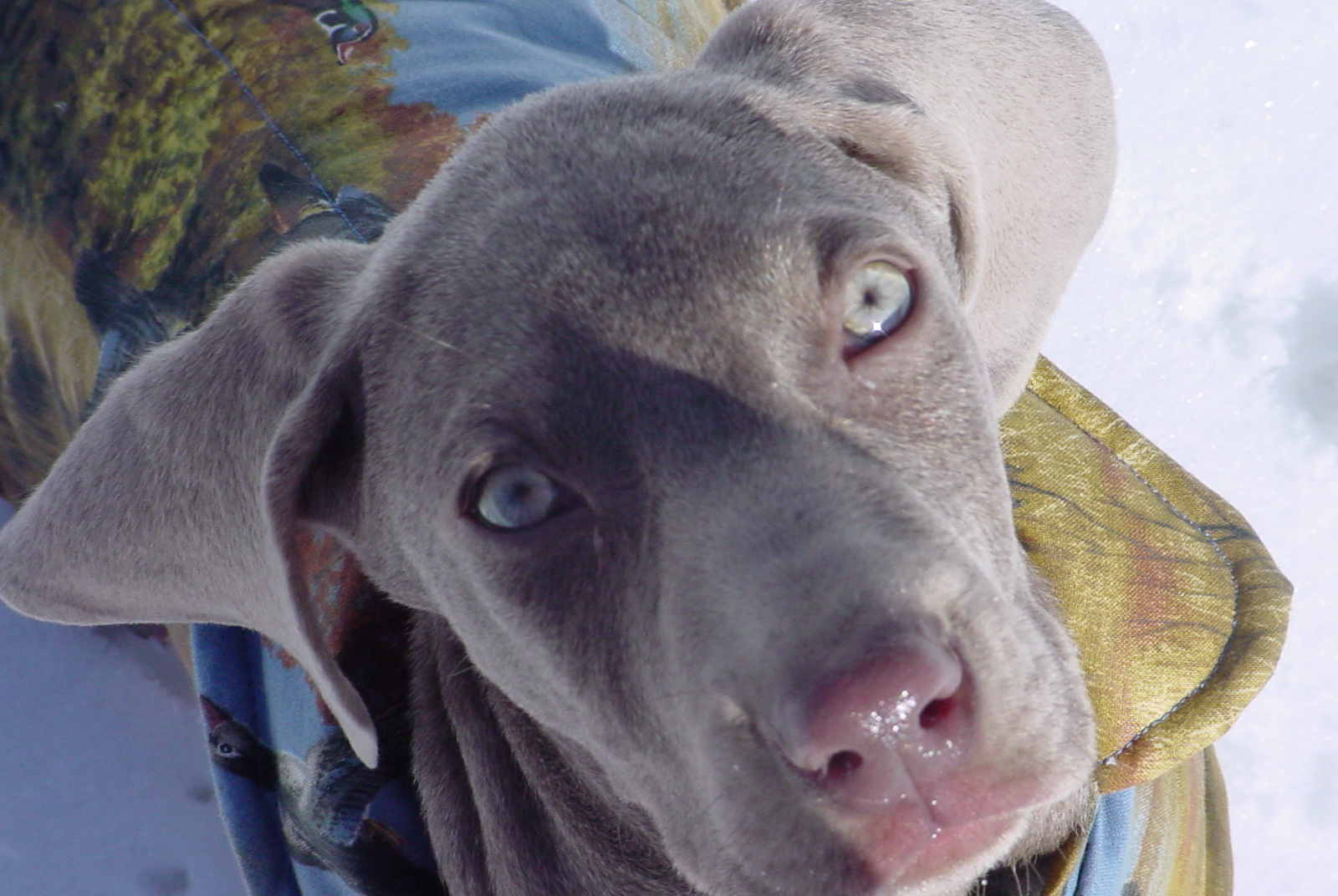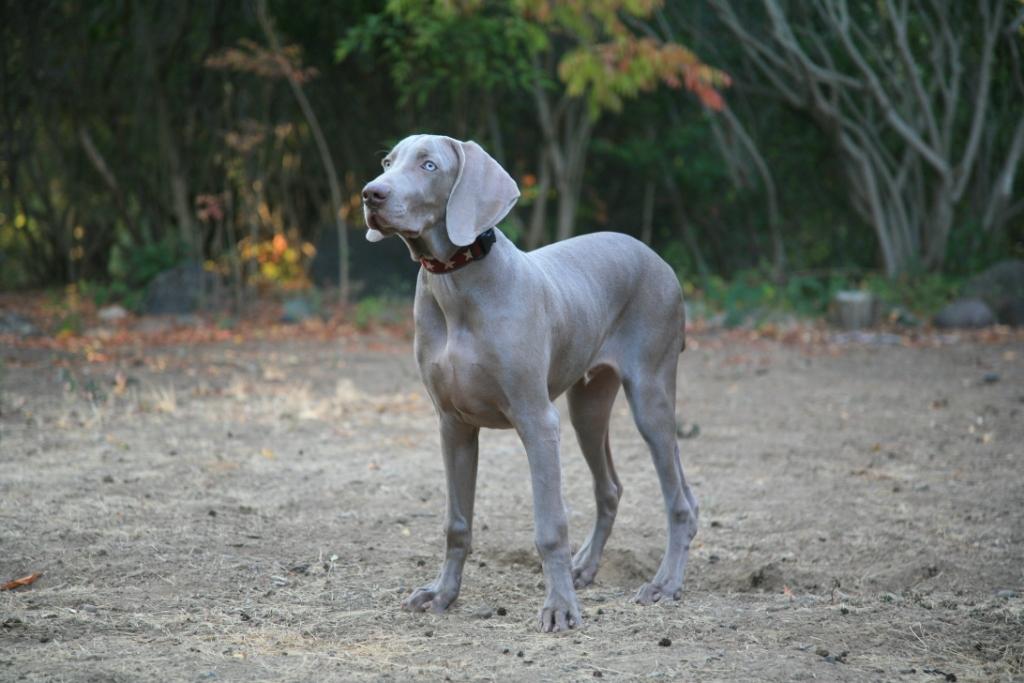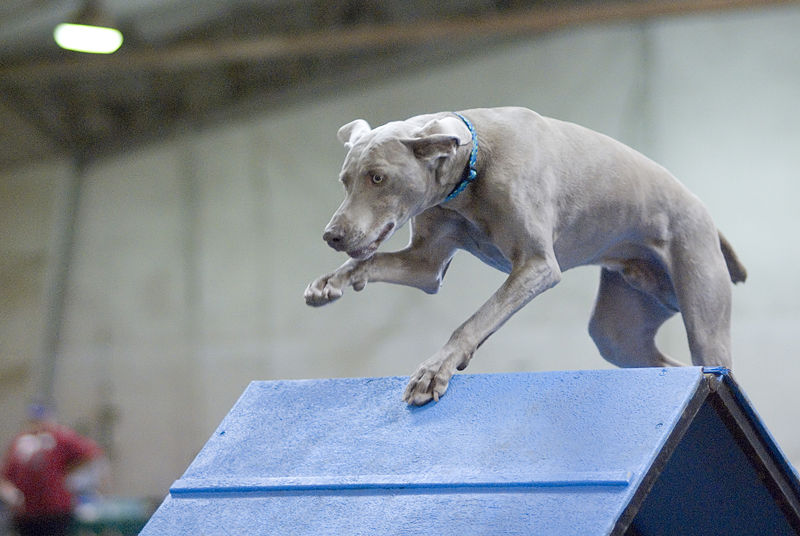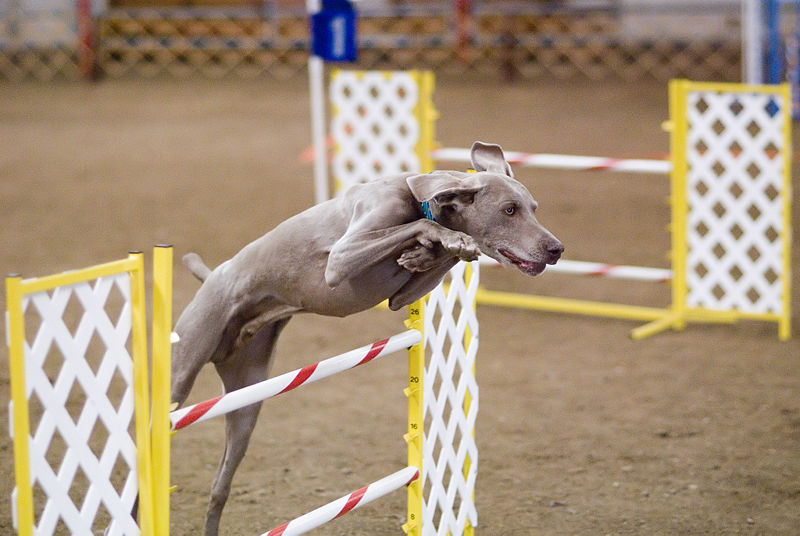
(Weimaraner Voerstehhund, Grey Ghost, Weims) The Weimaraner is a medium-sized dog with elegantly defined features and an aristocratic appearance. Their image is one of speed and grace, and their expression is alert and self-assured. Their back is moderately long, straight, and muscular, with a slight slope downwards at the withers. They have a well-developed, deep chest and shoulders that are well laid back. Their long ribs are well sprung and their flank is properly tucked-up. Their limbs are straight, sturdy, and parallel, and their compact feet are firm. They have webbed, arched, thickly padded toes. The breed’s hindquarters feature well-angulated stifles and straight hocks. The head of the Weimaraner is elongated and dignified. They have a moderate stop and a barely detectable median line that extends back over the forehead. The breed’s eyes are set far apart and possess an intelligent expression. Eye colors of this breed include amber, gray, or blue-gray. Their teeth are strong, even, and well-developed, and they close in a scissors bite. Their nose is gray in color and their clean-cut neck is comparatively long in length. The short-haired coat of the Weimaraner is smooth, sleek, and solid gray in color. The shades of gray will vary from mouse- to silver-gray. A lighter shade of gray is usually present across the face and ears. A small white marking on the chest may be present. Tails of this breed are customarily docked.
add infoThe Weimaraner is an energetic breed with a cheerful, affectionate disposition. While they are highly intelligent, they can also be willful and opinionated. For this reason, the Weimaraner needs firm, experienced training from an early age. The breed is sometimes leery of strangers and combative towards other dogs. Proper socialization can alleviate these traits. They have strong protective instincts and they are very loyal. While they are very good with children, they aren’t recommended for small ones they could inadvertently knock over. The breed is very rambunctious and should be taught not to jump. They shouldn’t be left unattended with small animals, and they shouldn’t be utilized as a herding or farm dog. They are hard workers and they approach hunting tasks with a great deal of passion. They have a keen sense of smell and can track and find all kinds of game. They need a substantial amount of human attention, and they shouldn’t be kept in a kennel. This breed likes to bark.
Most tend to be very stubborn.
add infoThe Weimaraner is prone to bloat. For this reason, they should be fed two or three small meals per day. Like many other larger dog breeds, the Weimaraner is susceptible to hip dysplasia. In general, they are very healthy dogs. This breed typically lives for 10 to 12 years.
add infoThere are a number of theories regarding the exact origin of the Weimaraner. Some believe the breed is a result of the impact of albinism on several types of German pointing dogs. Another theory is that the Weimaraner is a descendant of the Braken, a type of German hound. The third common theory is that the breed is the product of a crossing between a regular pointer and a specific type of yellow pointer. The first Weimaraner appeared in a Van Dyck painting in the early 1600’s. The breed’s original purpose was to hunt, track, and bring down large-sized game. As big game became scarce, the Weimaraner was able to adapt. The breed became well-known for its abilities as a bird hunter and water retriever. They have also been used as rescue dogs, service dogs, and police dogs. The breed was first brought to the United States in 1929 by the founder of the U.S. breed club, a man by the name of Howard Knight. The Weimaraner has a number of natural abilities including hunting, pointing, tracking, retrieving, guarding, search and rescue, agility, and police work.
add infoThe smooth, short-haired coat of the Weimaraner requires very little grooming or maintenance. It should be regularly brushed and dry shampooed as necessary. Rubbing the coat with a clean cloth or chamois will create a healthy sheen. Nails of this breed should be kept trimmed, and the feet and mouth should be checked regularly for signs of damage. The Weimaraner is an average shedder.
add infoThe Weimaraner is content to live in a small household or apartment if it receives plenty of daily exercise. They are a relatively inactive breed indoors, and they are happiest with at least a large-sized yard. Because they are a working breed with lots of stamina, they need regular opportunities to run free. This breed shouldn’t be exercised immediately after eating.
add info| Puppies For Sale | Find a Breeder | Rescue a Dog |
|---|---|---|
| Be the First to take out an Ad! |

Berlin, DE
Die Hobbyzucht im „Butzemannhaus“ ist geprägt von Liebe und Respekt gegenüber den Tieren. Ich sehe meine Tiere nicht... |
Be the First to take out an Ad! |
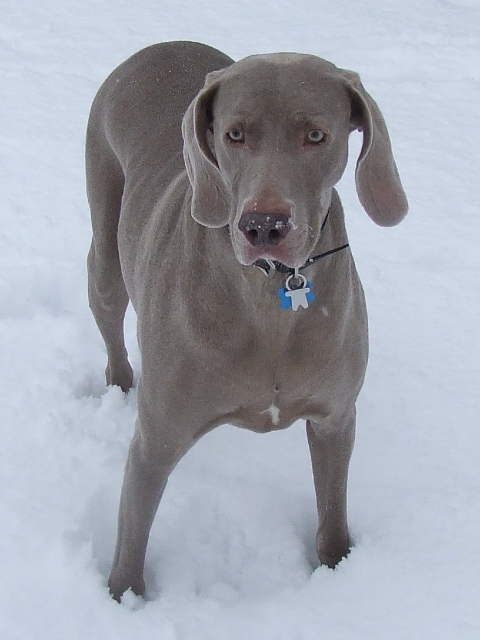 |
Older rescue dogs are always a tougher case since you can rarely tell what kind of life and training they’ve had. I recently got the chance to pet sit my friends Weimaraner and I was impressed with how smart he was. So, the good news it might not be that hard to train his aggression out. The main thing you need to establish with him is your dominance. His aggression is a sign that he feels dominate but is insecure with it. When he is around the Rottweiler, try keeping a leash with a choker on him. Give him about 1ft of leash, keep the choker high on his neck and keep him close to you. Try walking by the Rottweiler and give him a swift jerk when he starts to show even the smallest hint of insecurity or aggression. What you are telling him is that you are in charge, and that kind of behavior will not be tolerated. This will take time and repetition, but soon your Weimaraner should start to relax and not focus on the Rottweiler. Also, it is important that the Rottweiler is calm and submissive. If he is excited and out of balance, it may take a lot longer to get rid of his aggression. |
 |
No! Get that puppy to the vet if its jaw gets really big it could cause her/him pain and it might not be able to eat! |
 |
My 2yr old weim female also did this? We got her from a rescue centre,she has had a litter of pups while at the centre.I have now been told that this is a maternal thing? cleaning the pups genitals and bottoms.In doing this she is consuming faeces,i can only guess that this is learnt behavior.There are products you can buy from pet stores to help stop this it worked for my weim. |
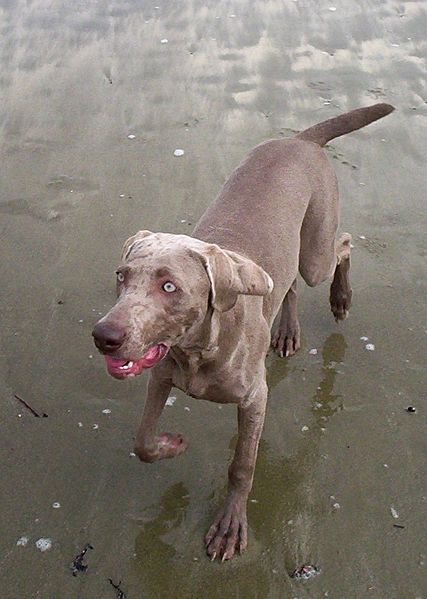 |
My Weim has serious anxiety. I blame it on her being left alone a lot while she was a puppy. Maybe it's just anxiety of being left outside or being left inside. |
 |
This isn't any problem.The pup needs some time to adjust with all of you.Feed him, love him, care for him, and he will be compelled to love you all.He will surely come over his behavioural problems after some time. Hope this helps :) -Sreemoyee |
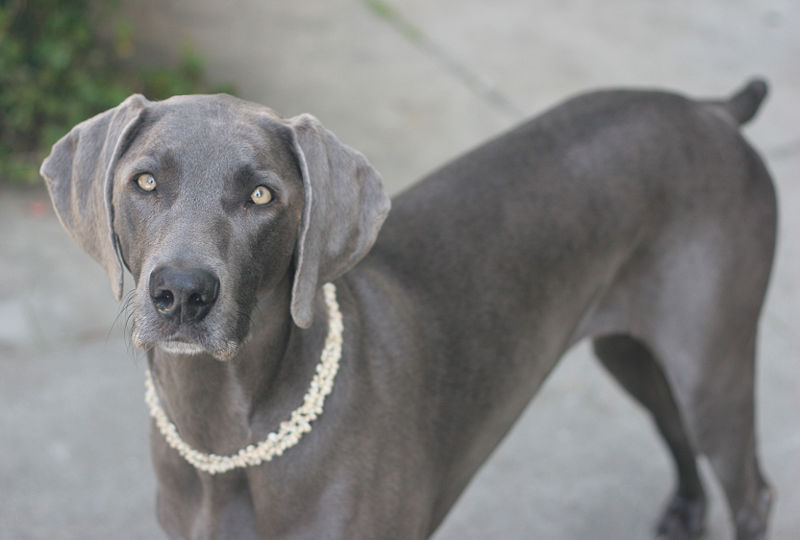 |
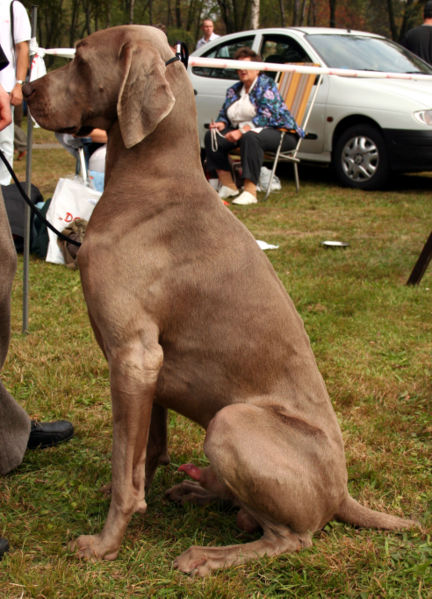 |
I have a Weim who is brill with my 2 horses we also gave 2 old cats and he would never harm them. |
 |
I have a Weim and I'm a Senior in college. I've had her for two years. I leave her inside my apartment while I'm in class, and try to take her to the dog park at least 4 times a week. |
 |
Thats pretty normal, my weimaraner, when it was just a puppy went right through the basement door, it was only a hollow core door, but the dog had ripped it up and then started on the outside door. The only way we fixed this was to bring it out with me all the time he seems totally fine in the car. If you have an outside job it would be best to bring him with you. Unless you work in an office. |
 |
The big problem is you haven't socialized your dog when she was a pup.Socializing a pup is very important.I don't know about other people but when she will be get used to your husband,she will be not shy as she is now.Don't worry.Some dogs are shy while some show that they are extremely brave and try to protect their pack (family) and they bark or bite a lot.Good, that your dog is not one of the 'extremely brave' ones. Hope this helps :) -Sreemoyee |








